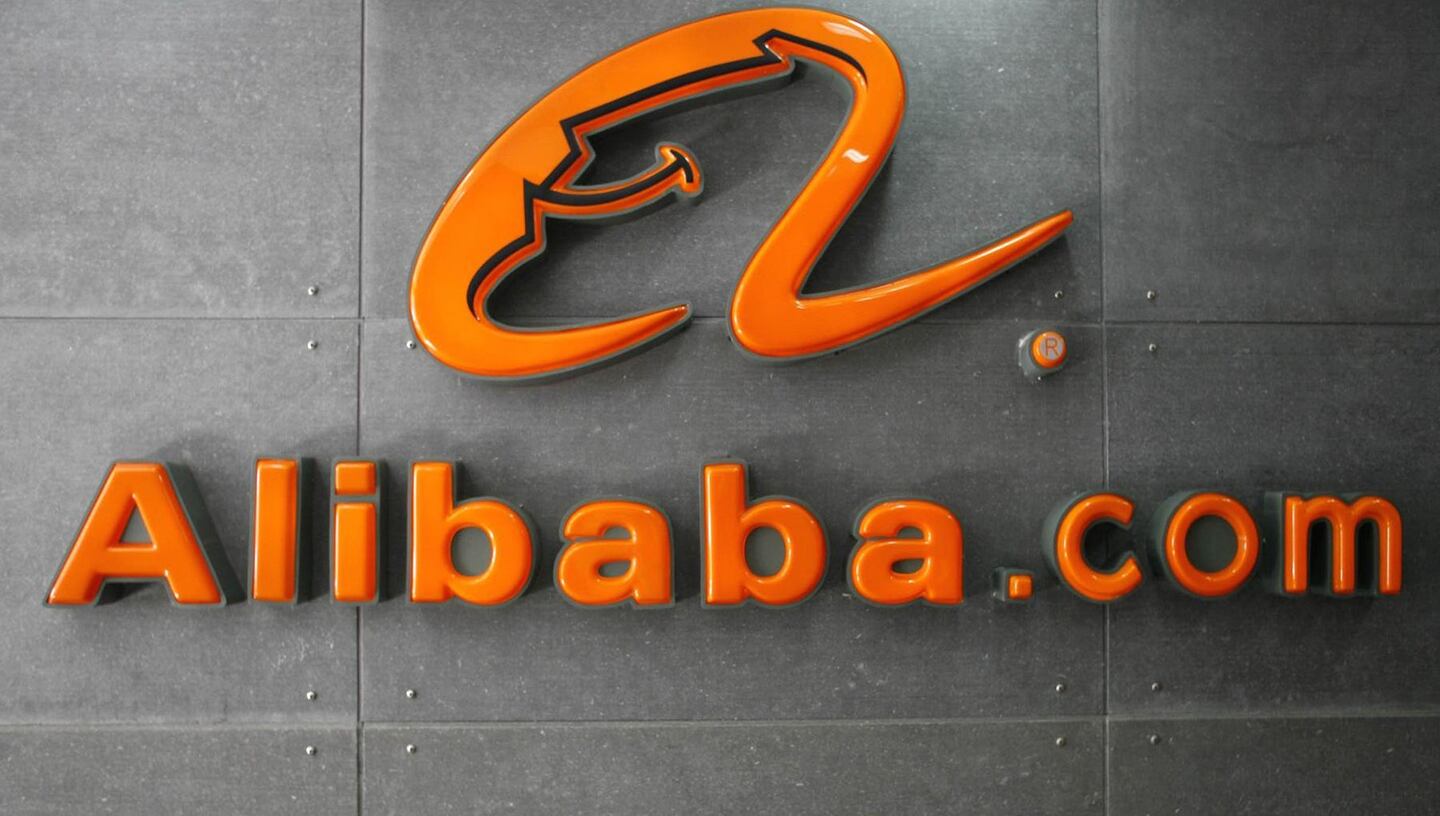
The Business of Fashion
Agenda-setting intelligence, analysis and advice for the global fashion community.

Agenda-setting intelligence, analysis and advice for the global fashion community.

HANGZHOU, China — After conquering grocery deliveries, Alibaba Group Holding Ltd. is setting its sights on a new part of China's $4 trillion retail sector: department stores.
The e-commerce giant, which is also venturing into cloud computing and entertainment, is increasingly looking at traditional brick-and-mortar businesses, chairman Jack Ma, vice chairman Joseph Tsai and chief executive Daniel Zhang said in interviews with Bloomberg News on the company's 18th anniversary. Alibaba, started in Ma's apartment in 1999, is worth $458 billion today.
The executives, speaking less than a month after Amazon.com Inc. closed its $13.7 billion acquisition of Whole Foods Market Inc., discussed Alibaba’s strategy for dealing with competition, its vision on data and challenges the company will face. Ma said Alibaba will need to embrace a different mindset given its current size, and move away from its asset-light approach to grab a bigger share of global trade.
“I think when you are young, tiny, a light model is good. When you are strong, big — think about it — you need heavy things. There is no heavy is good, or light is good — a mix is good. To be efficient, you need to connect light and heavy models together. But with Alibaba’s size today, you should not leave the heavy model to others, it’s something you have to do because the infrastructure you are building up, you have to invest,” Ma said.
ADVERTISEMENT
“It’s just like when you are climbing a mountain, when you are only 1,000 meters high, you enjoy it. It’s fine. Below 100 metres, you think everything is fine but when it gets to 4,000 metres, you don’t have enough air. You don’t have a lot of people working with you, and you don’t even know who to share your thoughts and worries with. And now we are probably like 5,000 or 6,000 metres high, so we get lonely,” he said.
Alibaba is also increasingly finding itself in competition with Tencent Holdings Ltd. over payments, cloud computing and financial services. Tencent Chairman Pony Ma (not a relation) and Jack Ma both aspire to expand beyond China. Alibaba is also battling Amazon as it seeks growth in Southeast Asia, with e-commerce in Indonesia alone projected to reach $65 billion by 2020 from $8 billion now, according to a report by Macquarie Research.
“I think even Pony does not have the same experience of globalisation as us. So for everybody, it’s new. For Amazon, I think e-commerce only started like 20 to 25 years ago, so nobody is an expert, especially when doing businesses in other nations. We are new. The competition that you should worry about is going to be in local areas,” Ma said.
“I’ve been saying this again and again internally. Alibaba going outside China is not about globalising Alibaba. We are globalising e-commerce infrastructure. We are trying to build the infrastructure of online payments. We are trying to build an infrastructure of logistics, and we are trying to build an infrastructure of cloud computing,” Ma said.
“We are going there so that, say they need the payment system, logistic system, they need the platform system. Now they can sell things globally. We are interested in the cross-border trading and e-commerce. I don’t think Tencent can do that. Because we’ve been doing this for 15 years. They will probably be good on the payments, especially if you are using WeChat, which the Chinese people are using. But when you go to India, Indian people don’t use WeChat, they probably cannot do a lot,” he said.
With China's tighter cyber security laws, technology companies face more challenges in the country. Alibaba is already China's biggest cloud-computing provider, with the unit projected to make up 15 percent of Alibaba's revenue by 2021, according to JPMorgan Chase & Co.
“Nine years ago, when Alibaba shifted its position from an e-commerce company to a data company, we had a huge fight internally and finally decided that we were shifting. So we haven’t called ourselves an e-commerce company internally for nine years,” Ma said.
“I don’t know how we can make money out of data. Data is so important for human development in society. It’s gonna be as precious as oil in the last century. So we have to work that out,” he said.
ADVERTISEMENT
Ma has spent years cultivating his image as a rebel fighting the system and knocking down walls protecting state-owned enterprises. He’s offered to “stir things up” for big banks, with Alipay introducing a money-market fund that siphoned away bank deposits. Ma has said his policy for dealing with the government is to fall in love, but not to marry.
“When you enter new fields without clear regulations, it is always a painful thing. They say, hey, my job is to regulate, not innovate, that’s your job. We have had terrible experiences, but we’ve learned how to work with regulators,” Ma said. “We are pushing that (reform in state-run enterprises) and this is why a lot of banks don’t like us in China. We are not necessarily interested in buying a bank to change it, but because we have been chasing them around, they reformed. When a tiger follows you, you can run much faster than you thought,” he said.
Alibaba is further along than Amazon and other rivals in the grocery shopping experience with its Hema stores. They’re one-stop shops where users can pay with their mobile app, get recommendations by scanning product bar codes, and have seafood cooked on the spot. Hema stores also serve as last-mile delivery fulfillment centres, where goods get to buyers within 30 minutes. Vice Chairman Tsai said Alibaba aims to adopt a similar model for shopping malls.
“Every time you buy something online through a Hema store, it’ll get delivered in 30 minutes. That requires a different kind of logistics architecture. The footprint of where you keep the inventory, and all that has to be different from the current architecture.” Tsai said. “In the mall context, you have similar ideas where the mall location should be able to serve both an in-store type of use case, but also if you don’t feel like going to the mall, you can order and if the mall is located near your home, we can deliver the items to your home. The mall type of thing will cover a lot more categories, a lot more products. It’ll be consumer staples, it’ll be apparel, it’ll be consumer electronics. We’re hoping to expand through the mall effort, into more categories. We don’t necessarily have to own these stores. We did make an acquisition of the Intime department store, in order to create an example, or a prototype of what an online-offline department store will look like. But I don’t think it’s a good use of capital to continue to buy a lot of real-estate heavy type of assets. I think we will continue to look at partnership approaches,” he continued.
Chief executive Zhang said the idea of converting stores nearby into fulfillment centres is what will enable 1 billion packages generated via Alibaba’s platform to be delivered every day in the future.
“Today if you look at the volume of the packages generated from our platform, it is about 55 million a day and we strongly believe that this can go grow to 1 billion, some years later,” Zhang said. “The size of the retail business in China is about 30 trillion yuan ($4.6 trillion). The question is, how do you redefine smarter package delivery? You don’t have to get the package and fly it from one warehouse to another city for a 200-kilometres delivery. You can deliver from the store nearby. It still creates a lot of new packages shipped, but very conveniently. So, today, all these logistics systems should be integrated into the commerce system,” he said.
By Lulu Yilun Chen, Stephen Engle; Editors: Robert Fenner, Reed Stevenson

The rental platform saw its stock soar last week after predicting it would hit a key profitability metric this year. A new marketing push and more robust inventory are the key to unlocking elusive growth, CEO Jenn Hyman tells BoF.
Nordstrom, Tod’s and L’Occitane are all pushing for privatisation. Ultimately, their fate will not be determined by whether they are under the scrutiny of public investors.
The company is in talks with potential investors after filing for insolvency in Europe and closing its US stores. Insiders say efforts to restore the brand to its 1980s heyday clashed with its owners’ desire to quickly juice sales in order to attract a buyer.
The humble trainer, once the reserve of football fans, Britpop kids and the odd skateboarder, has become as ubiquitous as battered Converse All Stars in the 00s indie sleaze years.